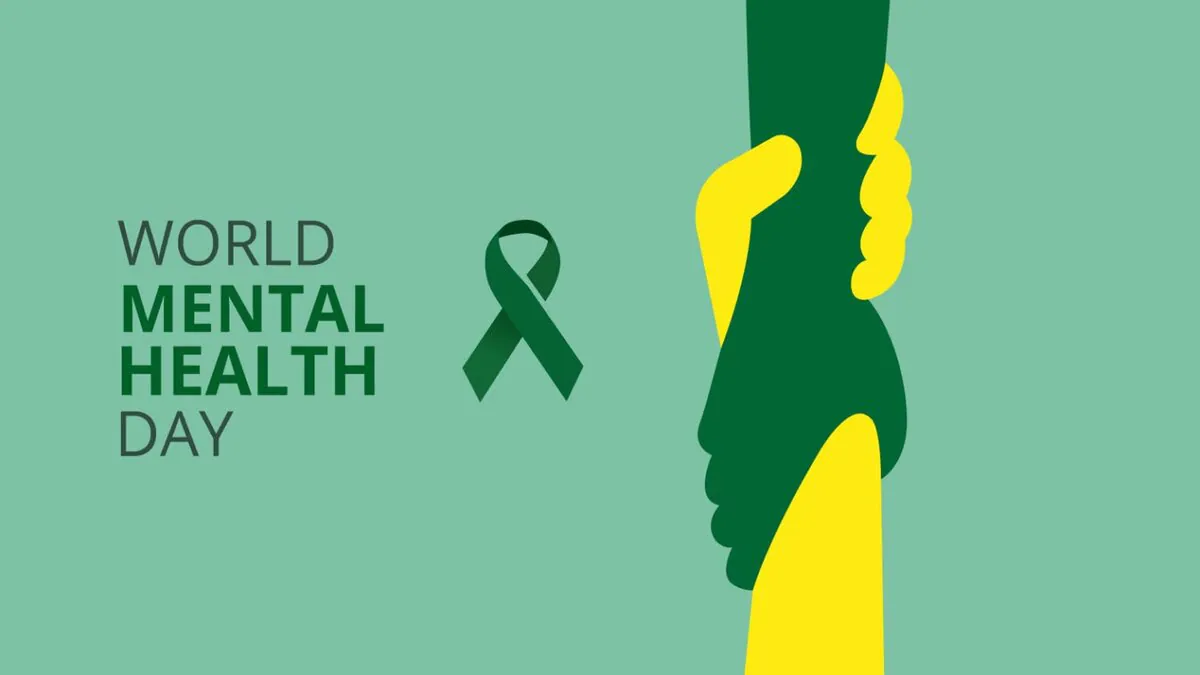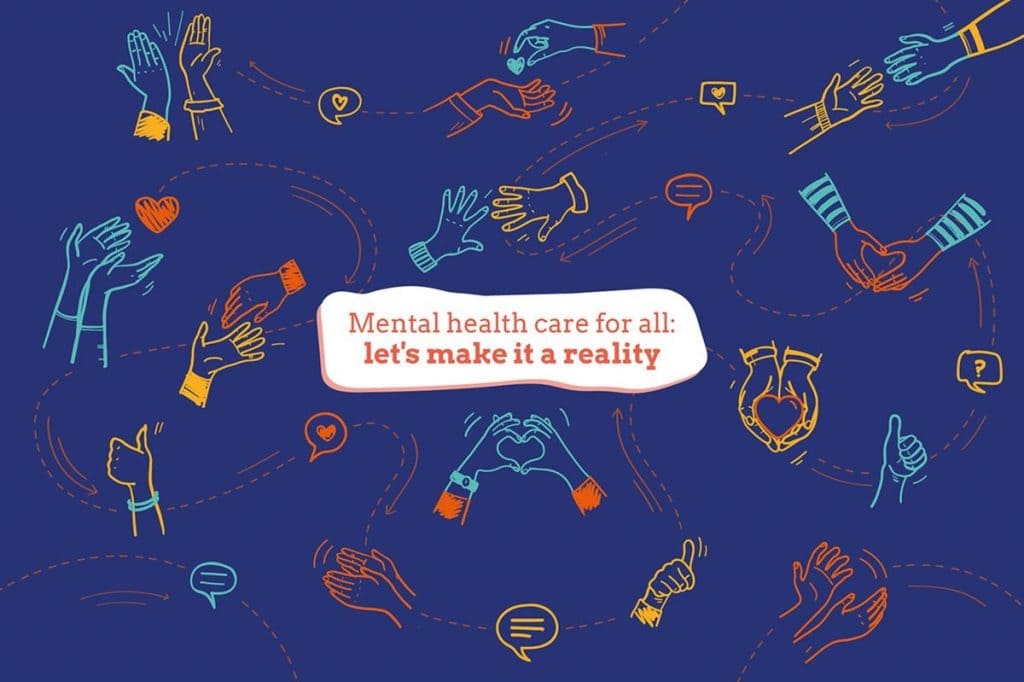
Intense schooling and tutoring, homework, and the worry of exams have pulled Lim into a state of constant anxiety. He’s gone into flight mode and refuses to attend anything where he needs to learn. This isn’t just it. Home isn’t a safety net anymore either, owing to an overworked mother, a depressed underemployed father, and the constant resultant turmoil. The only break from life at home was with friends and classmates at school, but with pandemic social restrictions, even this outlet isn’t an option anymore. The story of Lim is similar to that of so many others who are struggling with never-ending academic pressures as well as personal mental fatigue. The pandemic hasn’t only affected the victims of Covid-19, but every faction of society – particularly young people. Wondering if your mental health is fine? Read on for insights.
According to WHO, globally, one in seven 10 to 19-year-olds experience a mental disorder and half of all such disorders start by age 14 years, but most are undetected and untreated.
What are meant to be the growing, nurturing years have become tainted with feelings of loneliness, self-doubt, and low self-esteem. This is nothing new amongst adolescents, but of late mental health has become an even more urgent and desperate issue of concern, and institutional action is required to address it, particularly in schools and the workplace.
The mental health crisis
The pandemic has affected young people hard and Reports state that the last year has seen a whopping 31 percent increase in the incidence of mental health disorders amongst school children in Singapore. Before the pandemic, discussing mental health issues was perhaps avoided with the emphasis being on academic achievement and success. They say there’s a silver lining to everything – and perhaps the recent global acknowledgment and awareness of mental health challenges allow those who were holding back on their feelings actually to be able to speak up and seek help.
Why do students suffer alone?
Living in societies that regard mental health issues as ‘unreal’, or a way of seeking attention’ can stop someone from coming forth and being vocal about any sort of emotional distress. For some, emotions are even considered to be a weakness and hence they cannot be put on display.
Students, particularly fall victim to this kind of pressure and will hesitate before seeking help, as they fear judgment and rejection. Peer pressure and self-doubt are huge obstructions to seeking help from counselors or mentors. Students often suffer alone because they lack the trust and confidence that there can be a solution to their problems. The fear of mockery holds them back from being able to approach anyone they know and they lack the faith to even confide in school counselors who are trained to help and support.
What role do schools play in combating mental health issues?
Schools play a huge role especially as that is where children spend the majority of their growing years. Singapore is at the forefront of educational excellence with one of the world’s top school systems and is commendable in addressing the issue straight on. From recruiting teachers who double up as counselors to introducing subjects that concern mental health, many schools have taken necessary steps to reduce anxiety and depression.
Weekly sessions have been held in primary and secondary schools to motivate students to come forth with their feelings and emotions and improve their ability to handle stress.

Organizations like WHO (World Health Organisation) also dedicate days to spread awareness, such as the ‘World Mental Health Day’ which is quite close (10th October), when many schools are actively participating in dealing with topics related to mental health care.
We know the pressure is real
The world we live in demands academic excellence and students feel the pressure of competitive exams to achieve higher grades and education abroad. This is one of the most sensitive periods in a child’s life, where they evaluate their academic grades with their value. If they don’t score well, they feel they don’t hold much worth when it comes to peers, family, and their futures.
But How do you get through this?
Acknowledge your feelings
The first step to facing any kind of disturbing feeling is to accept that you even feel that way! Unless you acknowledge the issue, you won’t be able to resolve it. So when you’re not feeling fine about something, don’t pretend to be all bright and dewy when in reality you’re screaming inside.
Accept that you’re not fine, and reflect on the situations or series of events that led you to where you are now. Once you’ve accepted what you feel, and why you might be feeling it, you start to take the steps towards seeking support and solutions.
Look out for these signs in yourself and others
You may not even realize you aren’t quite feeling ok and it may not even be you. It could be your classmate, friend, or neighbor who is feeling anxious or even depressed. If you notice any signs that suggest they are not their usual self, start by talking to them, ask them if everything is fine, and encourage them so they know they have your support if they need it.
Sometimes, simply talking and listening or being listened to can solve half the problem. It’s not always so simple but having a shoulder to cry on can help release emotion. Word of caution though – most troubling situations are sensitive and you can only encourage people to share as much as they wish to and at the pace they are ready and comfortable. Be present and patient especially if you have already noticed some of these warning signs:
- – Losing interest in activities once loved
- – Missing out on classes and social gatherings
- – Experiencing extreme anger/sadness in a relationship
- – Talking about death or suicide more than often
- – Experiencing a tragic incident and not yet having coped with habits
- – Uncomfortable in a social setting
- – Visible panic attacks
You may not be dealing with any issues yourself, and you may not know anybody around you who shows these signs. In that case, you can reach out and volunteer with non-profit organisations, or donate a certain amount to welfare organizations that help battle the enemy of the mind.
Where to seek help
“We’re all human, aren’t we? Every human life is worth the same, and worth saving.”
J.K. Rowling
But you must take our word for this – this is not the most challenging part of your life. The pressure gets real once you step out of school, and you wish you had just stayed there because it’s one of the safest spaces you could be in. Our point is – there is a life outside school, college, and academics on a broader spectrum. Your friends, family, hobbies, and personal interests hold so much value that a failure or a rejection shouldn’t bog you down. Nobody gets to define you – you define you.
If you notice suicidal tendencies in someone, ADAA (Anxiety and Depression Association of America) recommends you take these steps:
- Straight up ask them if they consider killing themself. It sounds rather blunt but studies show that this bluntness would not increase suicidal thoughts and that it’s an important step to reaching out. (Please use your best judgment here).
- Act on your instincts and be alert – if they answer in the positive, ask them if they’ve got a plan. Get rid of any object that would be considered lethal. Make sure there isn’t a sharp object or gun around. Hide disinfectants and poisonous substances. Of course, this isn’t easy, but safety must be your priority.
- Make yourself available to them – emotionally as well as being physically present. Lend them an ear and also try to explain what happens after they do what they intend to do. Ask them how their parents would cope, how they would be remembered, and if that’s the ideal solution.
- Provide them with a credible source of help. Save the SOS (Samaritans of Singapore) Hotline number 1-767 — in your phone. If possible, also save this number on your friend’s phone.
- Keep in touch with your friends and keep a pulse on them so you may potentially be able to save a life.
After all, as J.K. Rowling said, every human being’s life is worth saving. When a person is distressed, feels failure in life, and decides to end their life, it’s not just them who gets affected, it’s their tribe who also suffers with them. So we must strive to make this world a happier, less troubled place to live in.
Look out for your mental health - take care of yourself and others.
At Young Scholarz. we offer 1:1 confidential counseling sessions. Click here if you’d like to know more.
Below are resources you could use (Source: https://bit.ly/3oKEoLe )
- Helplines
• National Care Hotline:
1800-202-6868 (8am – 12am)
- Mental well-being
• Institute of Mental Health’s Mental Health Helpline:
6389-2222 (24 hours)
• Samaritans of Singapore:
1800-221-4444 (24 hours) /1-767 (24 hours)
• Singapore Association for Mental Health:
1800-283-7019
• Silver Ribbon Singapore:
6386-1928
• Tinkle Friend:
1800-274-4788 and www.tinklefriend.sg
• Community Health Assessment Team:
6493-6500/1 and www.chat.mentalhealth.sg
- Counselling
• TOUCHline (Counselling):
1800-377-2252
• TOUCH Care Line (for seniors, caregivers):
6804-6555
• Care Corner Counselling Centre:
1800-353-5800
- Online resources
• mindline.sg
• My Mental Health
• Fei Yue’s Online Counselling Service











